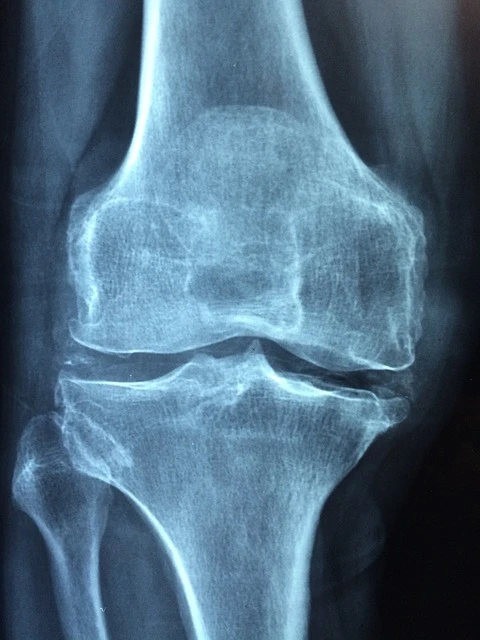This post may contain affiliate links and ads in which we may earn a small percentage of purchases.
Table of Contents
Part 2 of this article can be found here, Acupuncture After Knee Surgery: Navigating Successful Recovery
As an acupuncturist with over 10 years of clinical experience, I’ve seen firsthand the impact of knee issues on my patients’ lives. Today, I want to discuss whether acupuncture can help prevent knee surgery and how it can assist after surgery. This article is part one of a two-part series.
Can Acupuncture Prevent Knee Surgery?
My Professional Experience
In my career, I’ve worked alongside various medical professionals, including orthopedic surgeons. This collaboration has given me a unique perspective on integrating acupuncture with conventional medical treatments. Over the years, I’ve treated numerous patients both before and after knee surgery.
Can Acupuncture Prevent Knee Surgery?
The short answer is yes, acupuncture can help prevent knee surgery, but it depends on several factors. The effectiveness of acupuncture varies from person to person, and it is most beneficial when used early in the treatment process. If the damage to the knee is extensive, acupuncture may not be able to prevent surgery, but it can delay the need for it.
Portable dual-channel TENS/EMS device with 24 therapy modes for targeted muscle and pain relief.
 View Device
View Device
A clear and beginner-friendly guide covering over 400 acupuncture points, ideal for students and learners.
 View Book
View Book
A stainless-steel acupuncture pen and gua sha set.
 View Product
View Product
The Role of Acupuncture in Preventing Surgery
Acupuncture can be an effective preventive measure by promoting natural healing, reducing inflammation, and improving circulation. This approach helps to restore the body’s homeostasis and alleviate symptoms. However, once the damage reaches a critical point, surgery may become necessary. It’s crucial to attempt the safest and least invasive treatments first to determine if they can improve the condition.
Success Stories and Limitations
I’ve had success in helping certain patients on a case by case basis avoid the need for invasive knee surgery (arthroscopic surgery) through acupuncture treatment, but I have not had anyone avoid a needed knee replacement. Many of my patients have still required surgery due to the severity of their condition. They were told the condition was deteriorating after proper examination, shown through imaging (Xray, MRI, etc) that the damage was severe, and recommended that surgery was required. Even with a second opinion. To completely just go in reverse is unrealistic. Knee issues often result from a combination of factors, including wear and tear, aging, and nutrition. Acupuncture can significantly relieve knee pain and delay surgery, giving patients more time with their natural joints before finally surgical intervention. I’ve had patients who have had the ability to delay surgery from months to years.
The Lifespan of Replacement Joints
It’s important to understand that knee replacements and other surgical interventions have a limited lifespan. By delaying surgery through acupuncture, patients can extend the time they have with their natural joints, postponing the need for surgery until it’s absolutely necessary. This approach helps patients maximize the value of their natural joints and provides a temporary extension to the next step of surgery.

When to Consider Surgery
There comes a point when surgery may be the best option. If a patient does not see improvement after five to eight acupuncture treatments (and up to ten in some cases), it may be time to explore treatment options. It’s essential to evaluate the effectiveness of acupuncture early on to determine the best course of action.
Understanding Knee Damage
Knee damage can result from various issues, such as bone-on-bone contact, ligament damage (medial and lateral collateral ligaments, ACL, and PCL), and circulation problems. A thorough evaluation, including imaging like MRI, can help determine the extent of the damage and whether surgery is necessary.

Integrative Approaches
Acupuncture should not be viewed as a standalone treatment but rather as part of a holistic approach to healing. In my practice, I often combine acupuncture with other therapies such as herbs, acupressure, moxibustion, and topicals to promote circulation, reduce inflammation, and support systemic healing.
Customized Treatment Plans
Each patient’s treatment plan is tailored to their specific needs. Typically, patients start with weekly treatments one to two times a week for the first five to 8 weeks. Depending on their progress, treatments are then spaced out to once every two weeks, then three weeks, and finally as needed. This approach helps set clear expectations and goals for the treatment.
Preventive Health
Acupuncture can also serve as a preventive measure to maintain overall musculoskeletal health and prevent injuries. By incorporating regular acupuncture sessions into a wellness routine, patients may help preserve their bone and muscle structure, reducing the likelihood of needing surgery in the future.
So to answer the question, acupuncture can help prevent knee surgery if the condition is addressed early and the symptoms are manageable. It can also help to significantly alleviate symptoms and delay the need for surgery, providing patients with more time. Also, treatment is not a substitution for avoiding therapies and exercises prescribed to improve the knee.
As I stated before, it is not uncommon for patients to expect a complete 180 turn around when it has been explained that surgical intervention is an inevitable step. This is after careful evaluation, imaging, and exhausting all treatment options.
Collaboration with your trusted healthcare provider, including a licensed acupuncturist, can help patients navigate their treatment options effectively.
About the Vision
With over a decade of experience in the US healthcare system, I am a strong advocate for patient-centered care. My experience integrates Traditional Chinese Medicine and other integrative therapies such as bio-feedback with conventional medical approaches to provide holistic and effective treatment options for my patients.
Medical Disclaimer: This article is for informational and educational purposes only and is not a substitute for professional medical advice, diagnosis, or treatment. Always consult a qualified healthcare provider with any questions about a medical condition or treatment.



